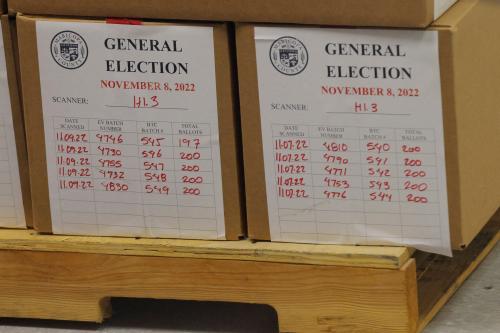Editor’s Note: Just weeks before the November 6 polls, can Africa play a part in shaping the race for the White House? In an open letter to Bob Schieffer, Witney Schneidman and Andrew Westbury discuss Africa’s impact on the campaign.
Dear Bob,
On Monday, viewers of the U.S. presidential foreign policy debate will turn to you as America’s chief moderator, time keeper, and indeed fact checker during what are sure to be spirited discussions and disagreements between the most powerful man in the world and another seeking to become the most powerful man in the world.
People will look to you for a series of questions that not only portrays America’s strategic international interests, but also accurately depicts the trends and dynamics shaping the world today. On this point, we urge you to use your privilege as moderator to direct the country’s attention to a part of the world that has never been more important, but, seemingly, never so neglected as it concerns American foreign policy priorities: Sub-Saharan Africa.
Once synonymous with instability and conflict, over the past decade, Africa has emerged as one of the most promising destinations in the world for trade, investment, and international business. Indeed, six of the world’s ten fastest growing economies are found today in Africa, including Ethiopia, Mozambique, Tanzania, Ghana, Zambia and Nigeria.
There is now a consumer class that rivals that of India and China both in size and purchasing power, and the majority of Africans live under democratically elected governments. With a population of nearly 1 billion people, and a median age of 19, the region’s potential upside has never been greater.
While a focus in the last two debates has been on strategies for U.S. energy independence, the reality is that the U.S. imports more oil from Sub-Saharan Africa than it does the Middle East.
Al-Qaeda has also been an important theme in both debates. Over the last six months, Al-Qaeda-affiliates have established control over northern Mali, an area the size of Texas that includes three major urban centers. Nowhere else has Al-Qaeda moved as quickly to control an area that can be used as a base to attack U.S. interests and those allied with the U.S.
Clearly there is much to talk about as it concerns the 49 countries of Sub-Saharan Africa and U.S. prosperity and security.
In fact, here are several questions for you to consider.
Last year, U.S. exports to Africa increased by 23 percent which supports more than 100,000 jobs in the U.S. This growth in exports comes at a time when the U.S. Commerce Department is withdrawing its personnel from the region hampering the ability of American companies to compete. What does each candidate propose to do to ensure that American companies can compete in this rapidly emerging region with Chinese, Indian and Brazilian companies whose trade has grown even faster than the U.S.?
A second question: Democratic governance is critical to sustained economic growth. While democracy has increased throughout Sub-Saharan Africa, institutions are still fragile in many countries and some leaders stay in office too long. In this era of fiscal austerity, what should the United States do to support the deepening of democracy and accountability in Africa, and how can we do this in a way that is seen to be a genuine partnership as opposed to the imposition of our will?
Finally, many conflicts in Africa have ended over the last two decades. Yet too many lives continue to be lost in places like the eastern part of the Democratic Republic of the Congo, Somalia, Sudan and, now, Mali. To what degree does the United States have a responsibility to the resolution of these conflicts, and where do you see the U.S. making its largest contribution to peace, security and prosperity on the continent?
Bob, you have a unique opportunity. Africa today is not as important to the average American as extracting our troops from Iraq and Afghanistan, guarding against another terrorist attack on the homeland and ensuring that our economic recovery stays on track. But given the rapid and often unanticipated change in our global community, Africa deserves consideration in the presidential debate on Monday. Moreover, we need to ensure that the next president is indeed looking over the horizon and understands the significance that that this region inevitably will have for the United States.
Again, Bob, please, ask about the U.S. and Africa. Thank you.



Commentary
Op-edAn Open Letter to Bob Schieffer, Moderator of the Presidential Debate on Foreign Policy
October 18, 2012